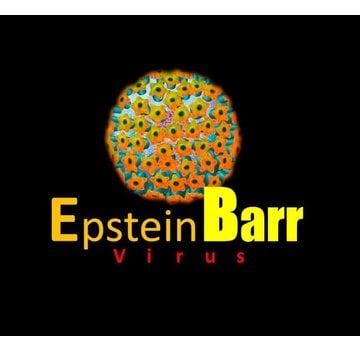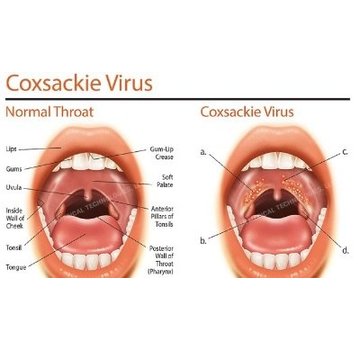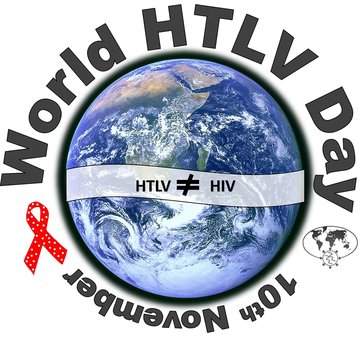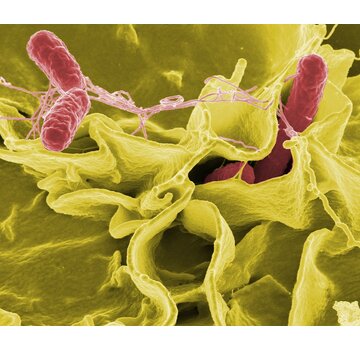Infections
Blood tests for infections are crucial to determine the presence, type and treatment of infections. Examples include HIV, hepatitis and COVID-19 tests. However, Pfeiffer, Chlamydia, Coxsackievirus can also be found in the blood.
Dengue IgG
Blood test for dengue (also known as dengue fever) to detect the presence of the dengue virus in the body.
€ 45,-
Pfeiffer
Pfeiffer's disease is demonstrated by antibodies against the Epstein-Barr virus. (EBV)
€ 79,-
Chlamydia trachomatis IgG Antibodies
Chlamydia trachomatis is the most common sexually transmitted disease in the Netherlands. In 70% of the cases, you don't notice anything about it. For the Netherlands, the number of couples with fertility problems as a result of a Chlamydia infection is estimated to be o
€ 35,-
Candida Albicans yeast infection
If overgrowth has caused the Candia fungus to pass through your leaky gut and into your blood, you can measure it with this blood test.
€ 76,-
HIV, Syphilis, Hepatitis
This blood test is the Risk Test Combi: HIV Syphilis Hepatitis. The test is fast anonymous and reliable.
€ 79,50
Dengue IgM and IgG
Blood test for dengue (also known as dengue fever) to detect the presence of the dengue virus in the body.
€ 89,-
coxsackievirus
The coxsackievirus is an enterovirus. Enteroviruses are very small viruses found in the intestines and stool. Test yourself today.
€ 119,-
antibodies against HTLV-I/II
HTLV type-1 is endemic to the Caribbean, Africa, and southern Japan.
In the Netherlands, infections with HTLV-1 are primarily found in people from
Suriname, the Netherlands Antilles and sometimes in intravenous drug users. The
vi€ 39,-
pfeiffer EBV PCR test
PCR blood test Epstein-Barr-virus (EBV). Using molecular techniques (PCR) EBV can be demonstrated in blood. The Epstein Barr virus causes the Pfeiffer disease.
€ 169,-
Pfeiffer - Epstein Barr Blot
Pfeiffer's disease is demonstrated by antibodies against the Epstein-Barr virus. (EBV)
€ 69,-
Salmonella antibodies IgA
When someone is a carrier of Salmonella, it means the bacteria is present in their body, but not always does one have symptoms of this infection.
€ 35,-

Want to know if you have a certain infection in your body? Through these blood tests you can measure it.
Get clarity on infections
Do you have Pfeiffer's disease, Chlamydia, Coxsackievirus or Corona virus. You test for these and many more in this category. Take the sure thing and get the facts.
A blood test for infection is done to:
Confirm or rule out the presence of the infection.
Identify the type and severity of the infection.
Assess the body's immune response by measuring levels of antibodies or pathogens in the blood.
Determine the best treatment options.
Track the progress of treatment.
Detect potential complications.
To help protect others if the infection is contagious.
A blood test can provide important information for accurate diagnosis and effective treatment of infections.
Antibodies are measured for several reasons:
- Infectious diseases: Antibody tests are used to determine whether a person has been exposed to a particular infection. For example, antibody tests can show whether a person has developed antibodies to diseases such as COVID-19, hepatitis, HIV or other infectious diseases.
- Vaccination: After vaccination, measuring antibodies can help determine whether the person has developed a sufficient immune response against the pathogen in question. This can be important in assessing the effectiveness of vaccines.
- Autoimmune diseases: Antibody tests are used to diagnose autoimmune diseases, in which the immune system produces antibodies that attack the body's own tissues. Examples include lupus, rheumatoid arthritis and celiac disease.
- Allergies: In the case of allergies, antibody testing can help identify specific allergens to which a person is allergic.
- Monitoring treatment: Antibody tests can be used to monitor the response to immunotherapies or other treatments, such as some cancers.
- Screening: Antibody tests can be used for screening purposes, such as in screening blood donors to detect infectious diseases such as HIV or hepatitis.
The timing of antibody tests can vary depending on the specific purpose. Sometimes they are performed shortly after a suspected exposure to an infection, while in other cases regular monitoring may be needed to track the immune response over time.













